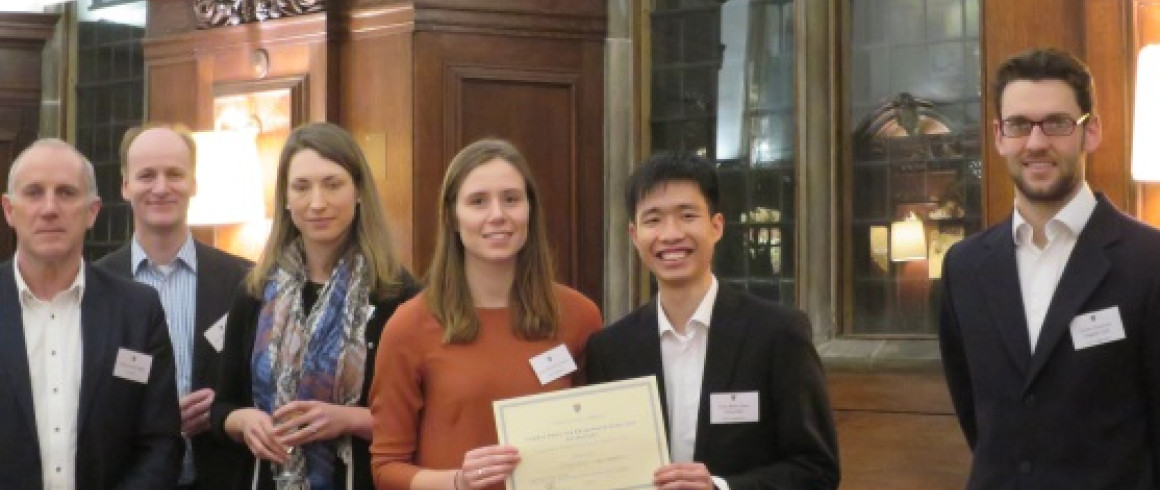A Piece of History
The College Treasures are, in many cases, a tangible link connecting us with almost 700 years of history.
In the 2018 annual Display of Treasures members of the College were able to connect with this history, starting with the College statutes from the time of our Foundress. That the material objects have survived intact is sufficiently impressive, and it is even more so when one considers the wealth of history they, and Pembroke, have seen.
[caption id="attachment_32134" align="alignnone" width="671"] College statutes, printed c.1580 and once belonging to Matthew Wren[/caption]
College statutes, printed c.1580 and once belonging to Matthew Wren[/caption]
Take, for example, the foundation of our College. As the College was being constructed in 1347, the Black Death was sweeping across Europe. It would claim millions of lives, and yet Aubrey Attwater in his short history of Pembroke describes it simply as part of the “general disturbed state of the country” which caused problems for the Foundress (other such problems including “recalcitrant nuns” at Waterbeach).
Pembroke was also directly affected by the English Civil War in 1642. The Civil Wars were a traumatic time for the College. Royalist-leaning from an early stage there was a point at which the College was without a Head or even a Fellowship to speak of, Benjamin Lany having been ejected along with the majority of the Fellows in 1644. It was not until two Masters later that the Fellowship regained control of the selection of a Master from Cromwell. Lany was restored in 1660 and rewarded for his Royalist loyalty by elevation to the see of Peterborough.
[caption id="attachment_32135" align="alignnone" width="671"] The College has also changed - including the addition of our Chapel after the Civil War[/caption]
The College has also changed - including the addition of our Chapel after the Civil War[/caption]
And there’s good too, and crucial social and political changes. The printing press was invented 92 years after the College’s foundation, and was a transformative invention. Since Pembroke first opened its doors, Newton discovered gravity, and Darwin proposed his theory of evolution. It is doubtful that the Foundress would ever have imagined that humans might walk on the moon.
Looking back at our history – at the people, change, and growth that have shaped Pembroke through the years – makes one wonder what comes next. It is exciting to imagine that we will see similarly transformative social and scientific growth, and that Pembroke will be here as part of that growth.
